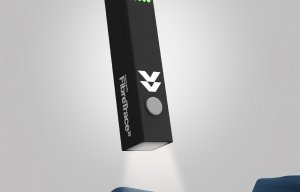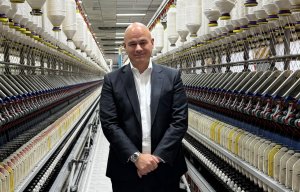Moving CO2 from molecule to material
Testing/Standards
German politician sponsors cotton marking project
Tailorlux and Dibella Group enable the traceability of textiles and offer support in securing organic cotton.

29th October 2018
Innovation in Textiles
|
Berlin/Münster/Bocholt
 Tailorlux and Dibella Group have won Renate Künast's sponsorship in Berlin for the organic cotton marking project of Chetna Cooperative. Renate Künast sees physical labelling as the solution to the problem of bio-fraud.
Tailorlux and Dibella Group have won Renate Künast's sponsorship in Berlin for the organic cotton marking project of Chetna Cooperative. Renate Künast sees physical labelling as the solution to the problem of bio-fraud.
“It's essential to be able to trace the path of cotton from the textile back to the field to stop fraud and greenwashing, and I support this innovative project out of conviction: the existing and proven technology shows how transparency guidelines should look like, to demonstrate the ecological cultivation of cotton,” she said.
Tailorlux develops and implements industrial marking solutions as a solution provider for product labeling. The aim of the solution concepts is to protect and prove the integrity of materials and products. “Many thanks to Renate Künast for the support,” said Alex Deitermann, Managing Director of Tailorlux.
“It is important that our efforts for a fair cotton market find an echo in politics: with our tagging, we can trace the path of the product seamlessly, eliminating mixing and blending – thus creating true product integrity that lives up to organic agriculture. Now that the technical possibilities have been met, the next step must be taken.”
The marking is based on the detection of emissions of luminescent pigments which are invisible to the eye. Via a carrier fibre, such as viscose or cellulose, it is mixed with the cotton. This fibre is similar to the chemical structure of cotton fibre and is introduced in a range of less than 1 per thousand in the production. The combination of the marking can be adapted to the customer's individual needs, similar to a fingerprint, and the sensors can be calibrated accordingly.
The sensors for reading the data are also provided by Tailorlux, so that the complete solution for marking and documentation comes from a single source. The sensors are specially calibrated by Tailorlux for the unique pigment created in the specific application.
Dibella is competent partner of textile-service for durable and industrially workable contract textiles in the hotel, catering and healthcare sectors throughout Europe. Since 2010, Dibella has been consistently expanding its offering with sustainable contract textiles. “With Renate Künast as the authentic patron, we have already taken a decisive step in the further development of our project,” said Ralf Hellmann, Managing Director of the Dibella Group.
“I am convinced that our cooperation with Tailorlux will result in a textile standard that will also cause a stir beyond our industry. Now we can finally provide the technical proof for the organic cotton used by Dibella of the cooperative Chetna Organics and, fortunately, trace our supply chain back to the farm level. For sustainability at Dibella means honesty.”

Business intelligence for the fibre, textiles and apparel industries: technologies, innovations, markets, investments, trade policy, sourcing, strategy...
Find out more











